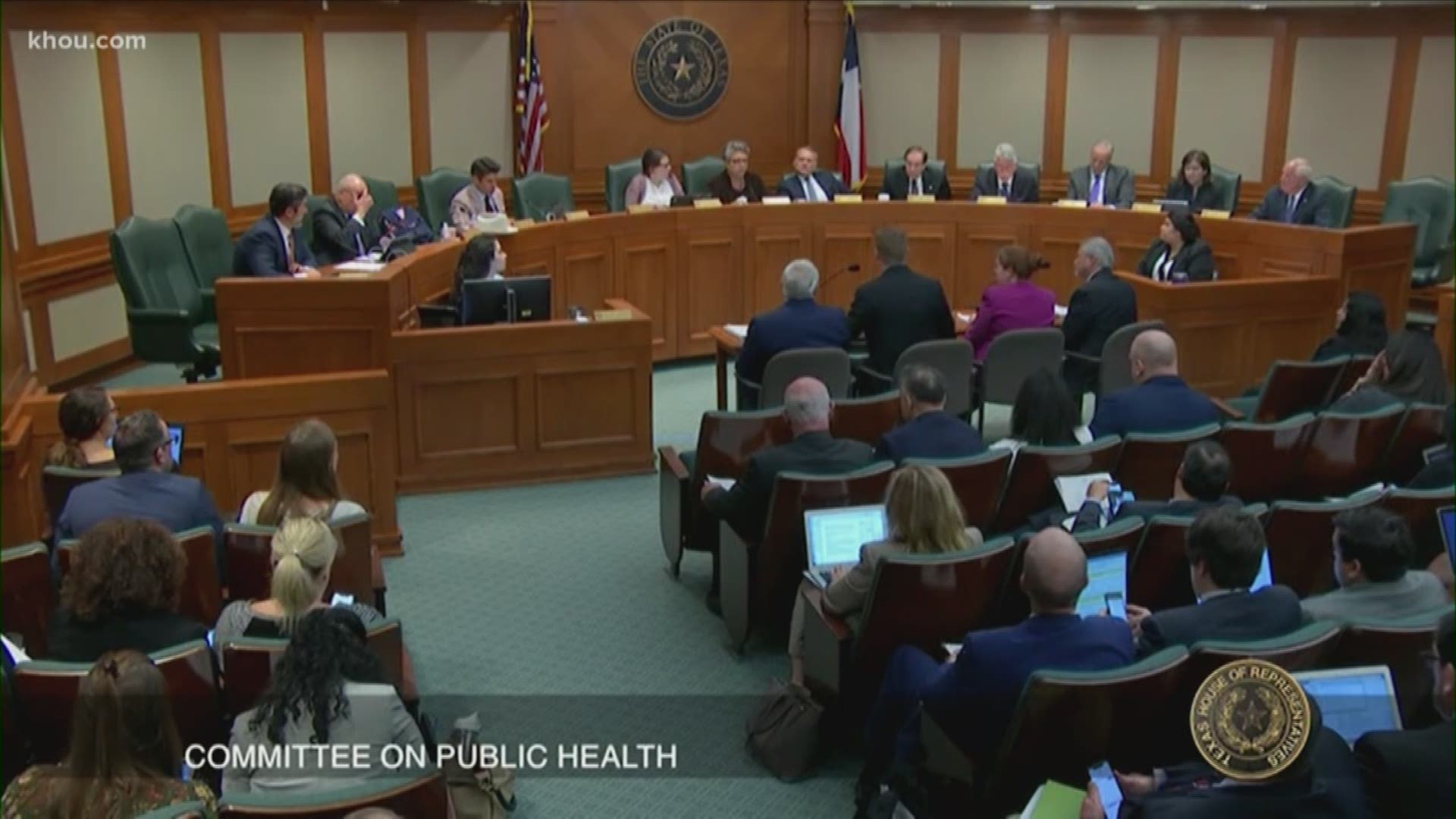HOUSTON — The fact that the response to something like the novel coronavirus is complex and multi-faceted was on full display at the Texas Capitol Tuesday, as the House Public Health Committee convened multiple local and state experts to talk Texas COVID-19 preparedness.
“There’s been a too long of a delay to get testing capabilities to the state and local level that has taken way too long from the Federal Government,” said Dr. Umair Shah, executive director for Harris County Public Health. “I think we need to call it what it is. It has taken too long. But now that it's starting to happen, we'd need to assure that we have the capacity and the capability to be able to do that at that local level. So quickly, we can determine if somebody is positive or negative.”
The topic of masks came up repeatedly, with health officials stressing that only people who are sick should be buying and using them.
“For our healthy citizens that are walking around, buying the mask, taking them out of the supply chain, wearing them around their neck, wearing them over their mouth, but not over their nose. It's not helpful,” said Nim Kidd, chief of the Texas Division of Emergency Management. “It creates a false sense of security. And in some cases, I think it even adds to the panic whenever you see somebody wearing the mask out in public.”
Kidd said there is training involved in properly wearing the recommended masks, as well as a facial hair policy. He asked the masks to be reserved for health care personnel.
One of the several questions lawmakers asked Dr. David Persse, the Health Authority for the Houston Health Department, was about hospital space and if Texas had enough of out. Dr. Persee said there wasn’t enough bed space if the disease spreads.
“Your hospitals, at least in my community, occupancy is generally in any given day greater than 95% full. That’s in off season,” Dr. Persse said. “We struggle every flue season with hospitals having more patients than they can handle and it’s scheduled. We know that’s coming.”
San Antonio Mayor Ron Nirenberg, whose city is the home to Lackland Air Force Base where the third cohort of evacuees are about to be hosted, said the Texas Center for Infectious Diseases has the capacity.
“The big message here to the federal government is that we need local hospital capacity to be preserved for what could be a containment strategy for a local community spread,” Nirenberg said.
The Texas Education Agency addressed several questions about preparedness, including what steps are being taken to take care of the children who rely on school meals to eat, who are part of the free or reduced lunch programs. What happens is they don’t attend out of fear related to COVID-19 or if schools are closed.
MORE ON CORONAVIRUS
- CDC: Up to 380 coronavirus evacuees to be quarantined at JBSA-Lackland in San Antonio as third wave arrives
- VERIFY: No, there aren't major disease outbreaks 'every election year'
- North Texas parents, 3-year-old child test positive for COVID-19, health officials say
- VERIFY: Does drinking water prevent the spread of COVID-19?
The free and reduced meal program is administered by the Texas Department of Agriculture and has rules on how the programs work.
“We have been in conversation with the feds,” said Mike Morath, TEA commissioner. “About rule requirement for free lunch and whether those services can be administered while the school is shut down for this kind of issue. Right now we’re looking for regulatory authority to do that.”
Morath said while the topic has been discussed, he didn’t know if the school closures in other states triggered any sort of action to feed the children who depended on the free and reduced lunches.
Experts testified that the U.S. has hit 71 days for the novel coronavirus response. For perspective, the H1N1 response lasted 18 months, Dr. Shah said.
Dr. Persse asked lawmakers to help get federal dollars faster.
Last week, President Donald Trump signed a more than $8 billion coronavirus package.
Dr. Persse used the Zika outbreak as an example, saying when Congress appropriated the response money in 2016, it took the City of Houston 233 days to receive that funding.
That’s over half a year, he said, adding we didn’t have that time with this event.
For the latest coronavirus headlines, text 'FACTS' to 713-526-1111
MORE CORONAVIRUS

